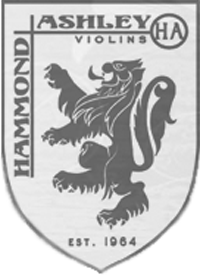Robin Holcomb photo by Ernie Sapiro
BY DEVON LÉGER
Having just released the second volume of a retrospective of her work, One Way or Another, Seattle-based songwriter and improvisational pianist Robin Holcomb is poised to take the stage at the Tractor Tavern on July 25 with Jake Xerxes Fussell. The Tractor’s an interesting spot for her, since it’s the center of Seattle’s Americana scene. Holcomb’s been pigeonholed for years as an Americana artist, a genre she pushes back against somewhat. Though she frequently draws from old folk songs, from the Harry Smith collection, and old country blues singers, she came out of New York’s improvisational music scene in the late ‘70s and early ‘80s and is a renowned classical composer with wildly creative song cycles based on American history. It’s unusual to find an artist who can move between vast complexity and stripped-back simplicity, Holcomb’s focus on the craft of music is what ties all her work together.
For Volumes 1 and 2 of her recent album retrospectives, Holcomb opted for simplicity, recording just voice and piano over a collection of songs taken from her work over the decades. But that kind of raw music craft can be deceptively difficult. “What you can’t hear on the CD is all my swearing in between takes,” she chuckles over a Zoom call from her Seattle home, surrounded by various keyboards and boxes of cables. “It was very intense.” Holcomb’s husband, Seattle jazz legend Wayne Horvitz, produced the album and helped her select a variety of songs from across her catalog, from her four albums for Nonesuch Records, and from her song cycles. The albums also include never-before-recorded covers, like Randy Newman’s “Old Man” and Stephen Foster’s “Hard Times Come Again No More.” When looking for a studio to record her songs solo with piano, Holcomb remembered Whitefish, Montana’s SnowGhost Music and recording engineer Brett Allen. She’d recorded a Seattle band of hers, Varmint, with him years back (the band’s motto was “no rehearsal, and no original music!”) and always wanted to work with him again.
Holcomb made her name in the ‘90s amidst a wave of female songwriters who were also pianists, though she never felt a part of that world. But this period brought a pace of recording that she wouldn’t return to in her later career until now, preferring to focus on composing and creating for the theatre and concert halls. Her song cycles, in particular, fed her creativity and interest in composition. She wrote song cycles about pioneering environmentalist Rachel Carson, the Pacific Northwest’s Utopian movements, the Everett Massacre, a terrifying wildfire in Paradise, California, and her own past picking tobacco in her youth. Though rarely recorded, some of the songs from these song cycles have made their way onto these two new albums from Holcomb, especially her favorite, “Deliver Me,” which she says she’s being asked to play for funerals more and more.
Holcomb didn’t start off as a songwriter. She came up instead in the Ethnomusicology department at UC Santa Cruz studying Javanese gamelan. But it was also in Santa Cruz that she first tried her hand at setting her poetry to song, for a staging of Shakespeare’s “The Tempest.” That was the key that brought her to songwriting and to her own singing. “I would sing the melodies to the singers and to the actresses,” she explains, “and they had trouble with them. Whereas to me, they felt like they were just melodies and they fit my voice fine.” Foremost in her mind at the time, however, was a move to New York City with her husband that brought both of them into an inner circle of improvisationalists (and world music heads) like John Zorn and Bill Frisell. Moving to New York in 1977, she came at the tail end of New York’s jazz loft scene. She remembers hearing great music at Sam Rivers’ Studio Rivbea and falling in love with what would come to be termed free jazz. Looking for a quieter home, Holcomb and Horvitz (and Frisell) moved out to Seattle in 1989, where they’ve been ever since; “I think we bought the last cheap house in Seattle,” she laughs.
The Seattle of today is a far cry from when she first moved to the region, and Holcomb mentions her reverence for the lack of sirens and the silence in Poschiavo, Switzerland, where she was invited to play the Uncool Festival. But she’s looking forward to her upcoming Northwest tour with young folk music scion Jake Xerxes Fussell, part of an open-minded roots music scene that she admires with ties to the Big Ears Festival in Knoxville, Tennessee. She and Fussell are perhaps similar artists, both beholden to the American traditions they love, but unable to be constrained.





